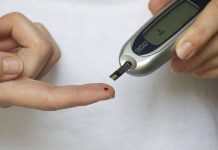Most if not all women who reached the age of menopause will experience mild to severe menopausal symptoms. If you’re going through the menopausal process and your symptoms are interfering with your quality of life, you may be considering hormone replacement therapy (HRT). This treatment is known for reducing some of the discomforts.
While HRT can help you get through this period, it is not right for everyone. Here, you’ll get useful information on menopause and hormone replacement therapy. You can then discuss your symptoms and needs with your doctor who can help decide if HRT suits you.
“Hormone replacement therapy for women also known as menopausal hormone therapy (MHT) is a treatment your doctor may recommend for alleviating certain symptoms linked to low levels of estrogen and progesterone.”
What is Hormone Replacement Therapy?

Menopausal women are those going through the period before their menstrual cycle stops permanently. The main side effect is a drop in estrogen and progesterone levels in the body. Estrogen is a hormone that helps regulate the menstrual cycle and other sexual reproductive functions.
Hormone replacement therapy for women also known as menopausal hormone therapy (MHT) is a treatment your doctor may recommend for alleviating certain symptoms linked to low levels of estrogen and progesterone. The FDA has approved these four types of treatment that may help you:
- Estrogen-Only Medicines
- Progestin-Only Medicines
- Combination Estrogen and Progestin
- Combination Estrogen and Other Medicines
The replacement hormones can be delivered in various ways including by pills, skin patches, gels, creams, sprays, and vaginal rings. Women with their uterus intact should only receive estrogen therapy (ET) while those who’ve had their uterus removed (hysterectomy) are treated with estrogen and progestin therapy (EPT). There is a risk of uterine cancer if EPT is prescribed to a woman who still has her uterus.
How HRT Can Help Menopausal Women?
The main purpose of HRT is to improve severe menopausal symptoms. Some of the common ones experienced are hot flashes, night sweats, mood changes, vaginal dryness, low libido, and trouble sleeping. Some women also experience bone loss which can lead to osteoporosis or brittle bone, increasing the risk of bone fractures.

Sexual intercourse can also be a discomforting event for women experiencing vaginal dryness. HRT works by delivering artificial estrogen and progesterone to boost hormone levels and regulate body functions dependent on these hormones. Some main benefits include:
- Boost in energy
- Better moods
- Improved sleep
- Enhanced sex drive
- Increased vaginal lubrication
- Increase in bone mass
How to Know If HRT Suits You?
Not everyone woman will need HRT. These are some of the things your doctor may consider when helping to determine if to treat you. They include your age, severity of the symptoms, medical history, existing health conditions, and other medications being taken. Women who should not receive HRT include those who:
“To lower the risks, the FDA recommends treatment be taken in low doses for the shortest possible time in women who qualify.”
- Have heart disease or a risk of, e.g., high cholesterol
- Have or had breast cancer or family history of
- Have high levels of triglycerides (fat) in your blood
- Have a history of liver or gallbladder disease
- Have a history of stroke or blood clots
- Experience unexplained vaginal bleeding

While this treatment is safe, there are certain side effects of HRT that you should know about if you are considering getting treated. According to the Office on Women’s Health (OWH), this therapy can increase the risk of blood clots, stroke, and certain cancers, including breast cancer. Studies show that younger women are more vulnerable to these risks than menopausal women past the age of 50.
To lower the risks, the FDA recommends treatment be taken in low doses for the shortest possible time in women who qualify. Notwithstanding, estrogen and progestin therapy may decrease the risk of colon cancer.
When to See Your Doctor
“Getting hormone therapy can improve your symptoms and enhance your overall quality of life.”
Menopausal symptoms are common for most women who are transitioning to the end of their reproductive years, although many of them do not need treatment during this time. Others, however, need to talk with their doctor about menopause and hormone replacement therapy.
If the symptoms interrupt your daily life, e.g., you have chronic sleep deprivation, bleeding during sex, severe mood changes, anxiety, or depression then you should speak with your doctor. Your doctor will do a complete medical evaluation and tests to diagnose your symptoms and determine if HRT is right for you.
Conclusion
Getting hormone therapy can improve your symptoms and enhance your overall quality of life. However, due to the possibility of health complications, it should be taken only if other treatments failed and when the benefits outweigh the risks. For these reasons, your doctor may also discuss or recommend natural methods such as a balanced diet, exercise, and a regular sleep schedule.
Sources & References:
U.S. Department of Health and Human Services, Office on Women Health: https://www.womenshealth.gov/menopause/menopause-treatment
Food and Drugs Administration: https://www.fda.gov/media/87765/download
MaoyClinic: https://www.mayoclinic.org/diseases-conditions/menopause/in-depth/hormone-therapy/art-20046372





















